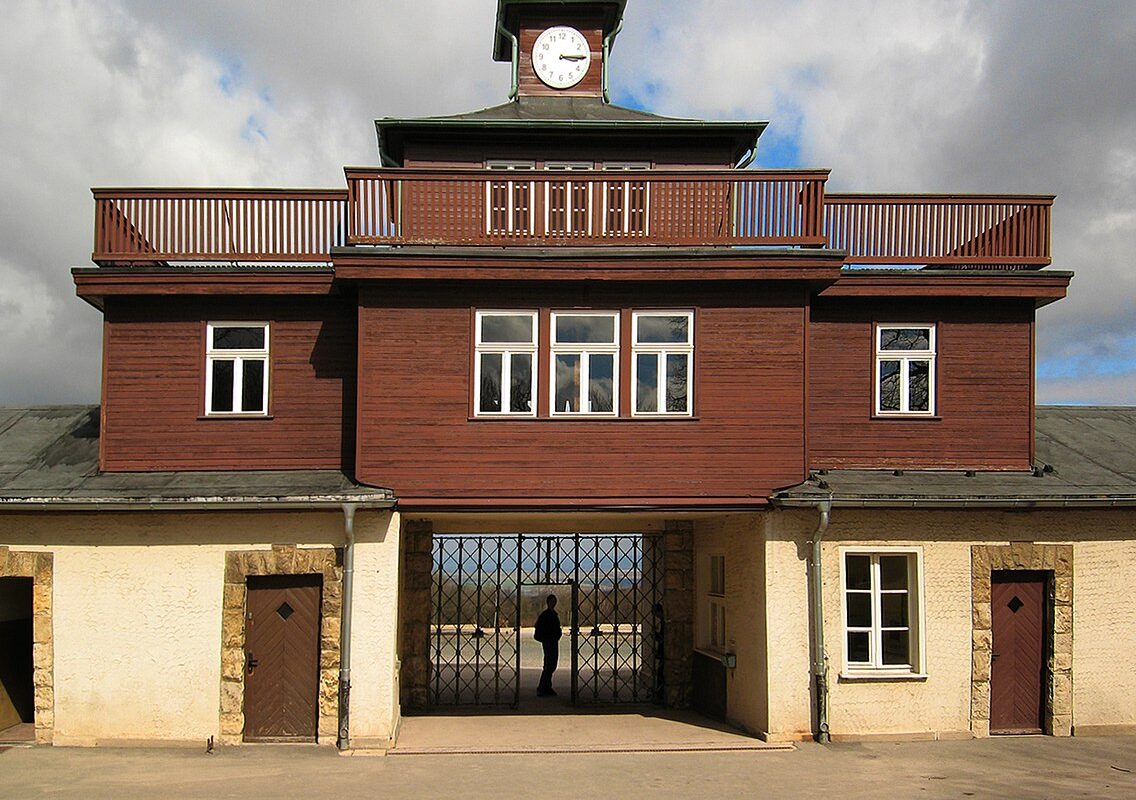On April 11, 1945, as U.S. troops approached Buchenwald, the resistance groups inside the concentration camp launched an insurrection. The secret leadership committee, made up of prisoners of different nationalities, handed out weapons to the inmates who proceeded to storm the gate house and the guard towers. Most of the SS guards had fled a few hours earlier — the rest were disarmed. When the U.S. army reached Buchenwald, they found a camp under the control of its prisoners.
In the following days, a wave of declarations were published. The most famous, the Oath of Buchenwald, ends with the line: “The eradication of Nazism as well as its roots is our guiding principle.”
Yet this document, influenced by Stalinist ideology, was contradictory. It thanked the “allied Armies of the Americans, English, Soviets and all Freedom Armies.” Yet these so-called Freedom Armies had done very little to save Europe’s Jews or other victims of the Nazis. Military commanders had refused to bomb the railroads leading to Auschwitz, for example, which could have saved countless lives. Throughout the war, the U.S. government had refused entry to Jewish refugees from Europe.
The Western allies were not interested in defending freedom and democracy — they were fighting for their own capitalist interests and colonial empires. At the end of the war against Nazi Germany, these “Freedom Armies” were carrying out massacres in Indochina, Algeria, India, Indonesia, etc.
A much more realistic assessment of the situation came from the Trotskyist prisoners, who published a Declaration of the International Communists of Buchenwald. They explained that the roots of fascism lay in the capitalist system, and demanded that the bourgeoisie pay for its crimes: “Expropriation of the banks, heavy industry and the large estates! Control of production by the unions and the workers councils!”
Today, 80 years later, the legacy of the Buchenwald resistance is more relevant than ever. A far-right party is topping the polls in Germany, with 24% of votes. Even more ominously, the new government of the CDU and SPD has committed itself to carrying out the AfD’s program. They want to eliminate, in practice, the right to asylum, a right that was established as a consequence of the German state’s crimes.
Last Sunday, there was an official ceremony at Buchenwald, including nine survivors of the camp. Omri Boehm, an Israeli-German philosopher and a descendent of Holocaust survivors, was invited to speak and then disinvited after a campaign by the Israeli embassy. Boehm is not a leftist, a socialist, or an anti-Zionist. He defends Kantian universalism that includes human rights for all. He could probably be compared to early liberal Zionists like Martin Buber, as he has proposed a binational state for Jews and Palestinians with equal rights for all.
Yet in the eyes of Israel’s far-right government, even liberal Zionists are traitors and antisemites, and they managed to get Boehm excluded. As much as the Zionist state claims to represent all Jews, they are eager to erase the entire history of Jewish universalism, including figures such as Heinrich Heine, Karl Marx, and Albert Einstein.
A young human rights activist closed her speech at the ceremony with a call to end the war in Ukraine and the genocide in Gaza. This was met with a sharp rebuke from the Buchenwald memorial, who say that reference to any other genocide amounts to an “instrumentalization” of the Holocaust. But isn’t it the other way around? Isn’t the camp being “instrumentalized” by an Israeli government with a far-right agenda?
The Oath of Buchenwald calls for a struggle against fascism — it includes nothing about defending a colonial project to build an an apartheid state. Today, Israel’s government is backing far-right parties in Europe with fascist roots.
The memory of the victims of Buchenwald — including Sinti and Roma, homosexuals, socialists, communists, etc — demands that we struggle against fascism and every form of oppression. Following their example, we need to unite across borders in the struggle for self-liberation. And as the Trotskyists’ statement reminds us, this means fighting against the system that brings forth fascism: capitalism.
Red Flag is a weekly column on Berlin politics that Nathaniel Flakin has been writing since 2020. After moving through different homes, it now appears on Friday at The Left Berlin.



